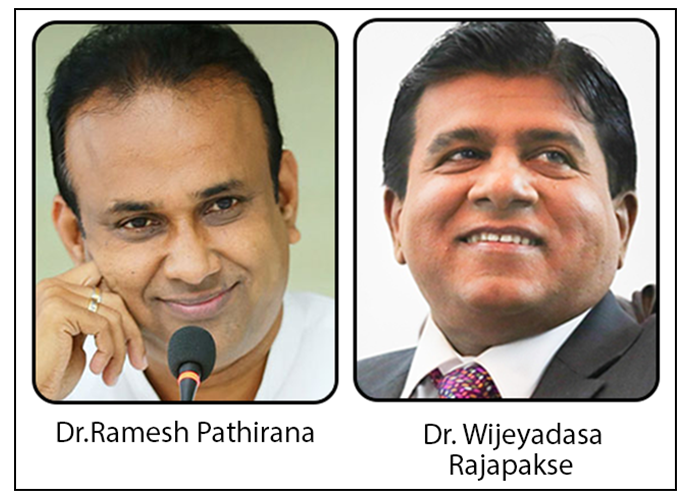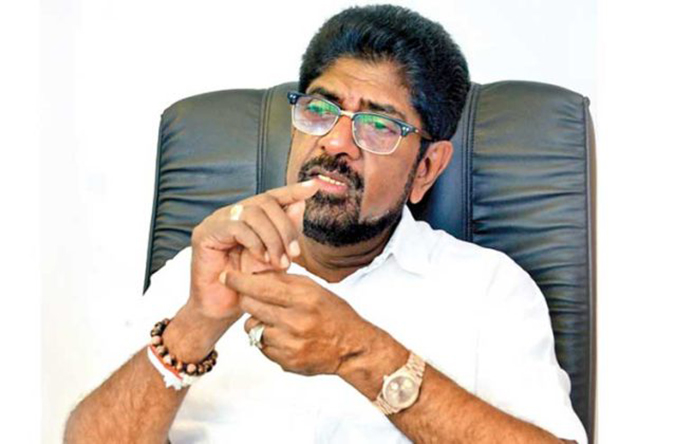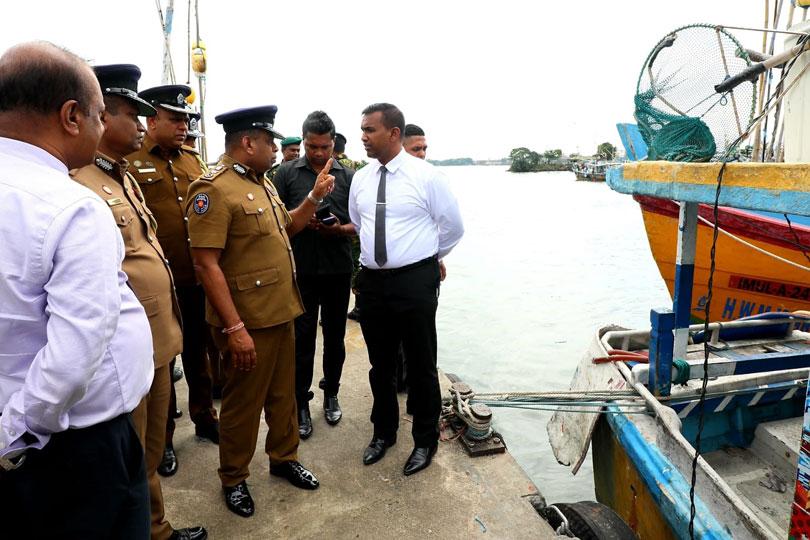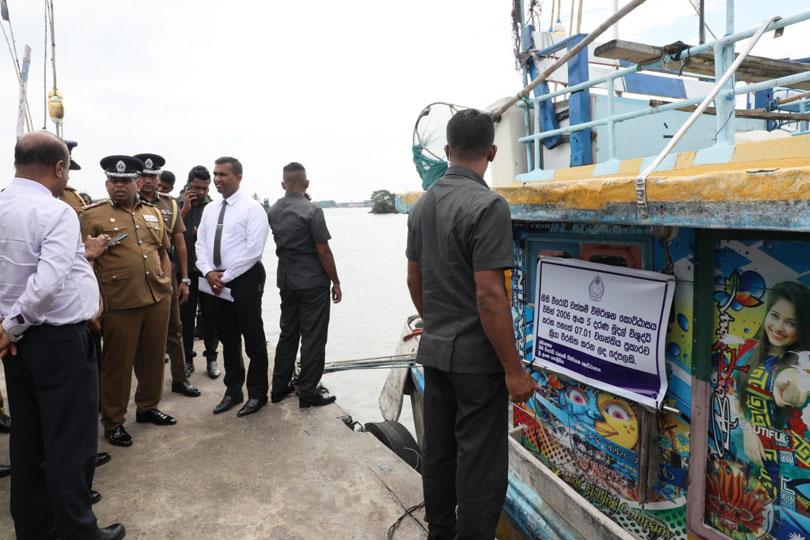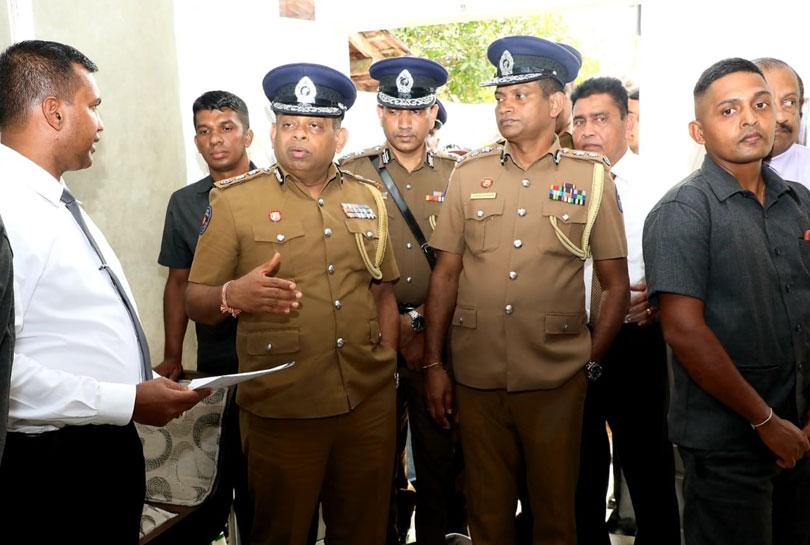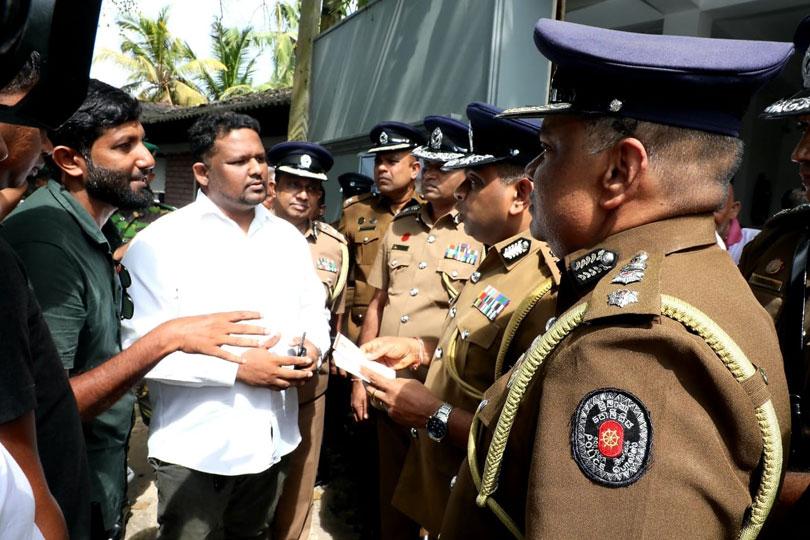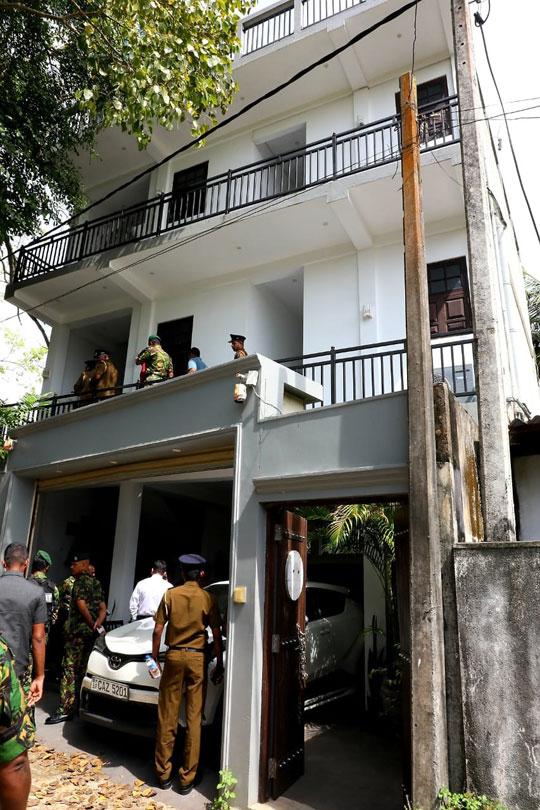Chanaka Bandarage
Open up Expressways for Most Traffic
Last week, it took a friend of mine 4 ½ hours to reach the Negambo’s Kochcchikade bridge from Colombo. This is insane. He said there was bumper to bumper traffic all throughout. At the same time the Katunayake Expressway – built after spending billions of rupees, had been empty.
This is also the case in Galle /Hambanthota Expressway. Basically, it is empty – very few vehicles ply on it; especially beyond Mathara until Mattala. But the Galle Road is always chockablock full, up to the Benthota Bridge (and sometimes beyond).
Only about 20% of the country’s population – those who own a car/vehicle reap the benefit of the Expressways. A few luxury buses (who charge a higher fare) are allowed to carry passengers on Expressways; meaning the poor who does intercity travel on ordinary buses are excluded from using the Expressways.
Motorcycles (including scooters), three wheelers and InterCity Buses comprise more than 60% of Sri Lanka’s registered motorised vehicles. These three categories are excluded from the Expressways.
The fact that Sri Lanka’s Expressways are confined only to high income earners is a clear anomaly.
This is discriminatory – all people are paying off the massive foreign debts borrowed to build the Expressways.
In the night, the Expressways are like ghost towns, they are totally empty. This is not so in developed countries. They are busy all the time.
Surely, the volume of traffic on our Expressways is insufficient.
Thus, the revenue that the government receives from them is less.
On the other hand, the roads that feed the Expressways (ie, High Level Road, Galle Road, Kandy Road, Old (Avissawella) Road, Negambo Road etc) are jam-packed with vehicles especially with three wheelers, motorbikes and InterCity buses (poor man’s vehicles). They should be allowed to ply on the Expressways.
Yes, Expressways must be opened up for these vehicles (the 3 categories mentioned in the above paragraph).
This could be carefully done as a Pilot Project for 3 months. If successful, the arrangement should be made permanent.
Allowing three wheelers, motorbikes and InterCity buses to ply on the expressways mean the Expressways will receive sufficient volume of vehicles. Not a single vehicle has been imported to the country in 3 years. So, there is relatively less vehicles on our roads now. But, once the import restriction is lifted, new vehicles will flow in.
The system suggested herein is healthy for the government coffers, as due to it the Expressways will start receiving massive new revenue. Most importantly, this will be a major solution to the country’s nightmarish traffic problem. The traffic on the main arterial roads will be significantly reduced.
True some of the poor man’s vehicles may not be able to travel at the maximum speed of 100 km per hour, but do we really need to maintain such a high-speed limit? The most important issues are the cutting down of vehicular traffic on main roads and utilising Expressways to their maximum potential.
In Sri Lanka, we are a small nation. It is possible to reach any destination by road within a relatively short period (say 4 -6 hours). Like other countries we do not travel thousands of kms in one trip.
Rather than the speed, having a smooth flow of traffic on Expressways is the most important factor.
Because there are no traffic lights on Expressways, all the vehicles would travel smoothly on them – not at the current high speed though, but at a moderate speed.
Say, a maximum speed limit of 50 km per hour is set for three wheelers and scooters, and 70 km per hour for all other vehicles; we would be able to create a Win/Win situation.
During very busy periods (April New Year, Christmas holidays) the three wheelers and motorbikes could largely be confined to the left lane only or their access to the Expressways could be totally curtailed.
Some may laugh at this proposition – that to allow motorcycles, 3 wheelers and inter city buses to ply on Expressways; only a bald, brave, visionary leader would embark on such a move. Lee Kwan Yu was not scared to ban chewing gum in Singapore (to maintain clean streets and public transport).
Of course car owners (especially the rich) will strongly oppose this suggestion – as they would not be able to drive at breakneck speed, and that they will have to share the Expressways with poor man’s vehicles.
Due to bumper to bumper traffic in all other roads, everyone suffers significantly currently.
A good leader will take decisions considering the best interests of the country.
In regards to Australia and New Zealand, motorcycles and intercity buses are allowed to run on their Expressways and they do not have three wheelers. Even push cyclists, huge container lorries are allowed on their Expressways. These two countries have only banned certain land vehicles (like tractors) and pedestrians from entering the expressways. Their Expressways are always busy (24/7) and earn terrific incomes for the governments. The situation in most western countries is similar. They build their highways for all peoples, not just to a privileged few.
Light Rail
There is the talk that the government is again keen on building the Light Rail system from Malabe to Fort via Borella (Stage 1). For this, they are seeking funds from Japan. It is possible that Japan may approve a soft loan.
True, this route has massive vehicular traffic. In any busy time, it takes about 10 – 15 minutes for a vehicle on Cotta Road side to cross Borella junction and reach Maradana Road side. Anyone would agree that this is insane.
It is also true that Light Rail can travel uninterruptedly above the ground; but that does not mean that it can solve Colombo’s traffic problem.
Light Rail has failed to solve traffic problems in Bangkok, Kuala Lampur and Tunis.
Parts of Malabe to Fort roads are very narrow, especially in Cotta Road; the writer believes that Light Rail in some areas will run single track on both ways, for example around the Ayurveda junction and Welikada flyover. Then, this would significantly reduce the number of Light Rail cars that can be operated. This means Light Rail will not be able to cater to a very large number of people.
Light Rail intends to acquire lots of land, including private land; but these are highly congested areas. And, they are very valuable land. The owners will no doubt put up stern fights against the acquisitions. Simply, there is hardly any privately owned space available in Stage 1 level for specific road widening.
As there will be lots of underground digging involved, it will take a long time to complete Stage 1. Those who reside in those areas will suffer significantly until the work is fully completed.
Proponents of Light Rail say that private car users will start using it; hence Colombo’s vehicular traffic will be reduced. It is difficult to agree with this. Empirical evidence suggests that those who are addicted to cars will continue to use them; they will not give up the addiction easily. The same rationale applies to motorcycle/scooter riders.
No doubt, Light Rail will have passengers, but they would not be much. Majority of them will be existing bus commuters; not the car and motorbike drivers.
What Light Rail would do is to take over some of the existing bus loads (in this Pilot Project route, about 95% is private buses, SLCTB is only about 5%). This means if Light Rail is to reduce Colombo’s traffic, that would only be in relation to reducing some bus operations. Is it worth spending such a lot of money then?
The writer invites readers to examine carefully – should we improve the existing public bus and rail transport system or create the Light Rail?
All would agree that the first proposition is good and will save us lots of money.
This question compels us to examine Sri Lanka’s especially Colombo’s omnibus transport system:
To improve the bus transport, the government must take full charge of the operations. Currently private bus operators run the show.
In Colombo there are hardly any SLCTB buses being run. All the lucrative routes like 102, 103, 138, 154, 177 are in the hands of the public bus operators. Basically they have a larger say in determining the number of buses running on routes, issuing route permits, time keeping and preparing bus timetables.
The private bus operators want to make maximum profits. They would not like more buses on the routes. Fewer buses mean more opportunity to sardine-pack. Then, of course, more money for them.
Sadly this is what is happening today. The politicians may not know this reality, as they travel in luxury surrounded by bodyguarded vehicles.
The politicians ‘fly’ on our roads bypassing all traffic, sometimes even using Police sirens.
Basically, the private bus operators have the complete freehand to do whatever they want; the authorities keep a blind eye.
The private bus operators detest SLTB buses running in their routes. As there are less passengers, they do not want to run buses in the night, say after 730 pm,. This has also adversely affected the economy.
This is also the main reason why there are less people on streets at night. Sri Lankan cities have little night life, and this is one main reason for same. Not everyone has money to travel in three wheelers and taxis.
What a good, caring government must do is rather than spending billions of public funds on a seemingly useless Light Rail project, to improve the SLTB/private bus network, and also the trains. Rather than rickety old buses that run on lorry chassis, comfortable, automatic, A/C, buses must be introduced (like in Singapore and Kuala Lampur).
In peak hours Paris/London/Melbourne, a suburban train leaves in every 2 5 minutes. There, people travel in comfort; most of the time they have a seat. In peak hours at Fort Station, a train leaves on the main/coastal lines in every 30 – 40 minutes. Hence, the enormously jampacked trains. About 65% of our commuters travel standing.
Why cannot the CGR introduce additional trains at peak hours?
This is not a big task (they want to see people suffering?).
To streamline the omnibus transport, the power and control that the private bus operations currently have must be taken away from them. It must firmly be in the hands of the government.
In the current context, this is very difficult to achieve. Why? Because we do not have leaders who genuinely love the masses. Most of them are in the private bus owners’ payroll.
As stated before, we have narrow roads/streets in Sri Lanka, especially in Colombo. Most were built during the colonial period. The buses that we have are very large. They are too big for the roads/streets. That is the main reason for huge traffic jams and the large number of road accidents. The buses use loud horns unnecessarily. The Police does not take action.
The authorities must consider introducing smaller buses, like 26/18 seater buses, in some routes. This will be in addition to the existing big buses. A blend of big and small buses is the best way forward. Small buses are ideal for night time transport (then, the 103 Fort to Borella, 138 Fort to Homagama can be able to run until midnight).
Sri Lanka is one country where public transport is run solely based on profitability. This problem arose as a result privatising the public transport (in early 1980s).
They say that Mr MH Mohomed killed the CTB.
Public transport must be people focused. This is how they are run in developed countries.
Buses must be freely available at all times.
During CTB days buses were run until late nights regardless of whether there were passengers or not. There were 930 pm movies in cinema halls those days. This is because there were CTB buses available for people to commute after watching late night movies.
The rule of thumb is that when a bus (or a train) is run regularly for a long period of time, even if it is in the night, that route will start picking passengers. Eventually there will be sufficient people to travel even late night.
What is required is strictly adhearing to the timetable.
As they can be jampacked, private bus operators like big buses. They are money making machines.
Their only focus is to increase passenger numbers. They pay scant regard to passenger interests/comforts. The fact that they cause huge delays to passengers is immaterial to them. They know there is no one to check/complain to.
Private buses (not SLTB) when running, remain stationary at bus halts for extra-ordinarily long times. See this example:
The writer was informed by a bus commuter that her 178 private bus from Narahenpita to Mattakkuliya stops and wait at some bus halts for over 10 minutes. In Kosgashandiya, it stays stationary for about 15 minutes to pick commuters. This means the whole journey which should take about 45 minutes could take about 90 minutes.
As they have no other alternative, people have become used to this rort. People suffer in silence. The massive time wastages adversely affect the economy too.
Due to lack of sunlight the ground underneath the Light Rail concrete slab is always dark; also that valuable area is unproductive (note areas under Colombo flyovers – Dematagoda, Nugegoda, Dehiwala; under the Katunayake expressway in Ragama; under the Light Rail tracks in Bangkok/Tunis). Light Rail introduces a new darkness to the environment; the brightness in the townships will end.
Light Rail will not solve Colombo’s appalling traffic problem. The only solution is to where possible widen existing roads, build new roads (underground/overhead roads/flyovers should be considered), ban parking on main roads (build multistorey/underground car parks) and significantly improve the passenger bus/rail transport (encourage as much as possible people to give up cars/motorbikes). As indicated before, introduction of small buses, in addition to existing large buses, is a must. Any opposition by private bus operators must be disregarded.
Metro as opposed to Light Rail:
Instead of Light Rail, an underground Metro rail system like in New Delhi, Mumbai, Dhaka (Bangladesh), Kyiv is ideal for Colombo (why drive a Maruti when the opportunity provides for a BMW).
The advantage of Metros is that they are linked with the existing railway system. The writer believes that a complete/very comprehensive underground Metro rail project in Colombo will be about 20 times more expensive than the full Light Rail project. But, in the long run it is much better.
Meticulous digging of the surface to create a very elaborate underground Metro network is a humongous job.
The writer believes that electrifying our existing railway network is more important than Light Rail (at least from Fort to Polgahawela and Fort to Panadura). Since Independence, governments have indicated this but no one had the audacity to undertake it. The benefits of train electrification are enormous. In South Asia, only India has electric trains.
End
In summary, rather than Light Rail, the government should utilise money to improve the existing public transport system. Light Rail cannot stop Colombo’s traffic problem. An underground Metro is much better.
At the moment our bus/train services are appalling. Just like in the 1970s and 80s, people are still traveling in jampacked, old buses/trains. Some people die after falling off the footboards.
These are hallmarks of a chronic 3rd world society.
There is no incentive for vehicle owners to switch to public transport.
The public transport commuters undergo untold hardships; an increasing number of them are women. They still suffer sexual harassment in jampacked buses and trains. Special buses and train compartments must be allocated for female commuters.

